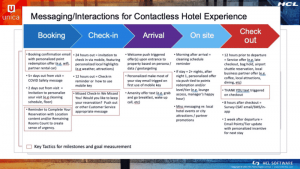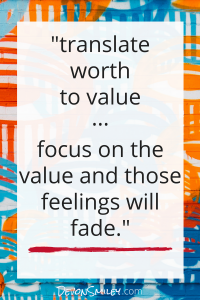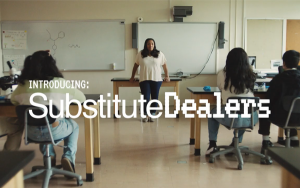People speak an average of 7,000 words a day by some estimates. Of course, that varies widely depending on your job, your position, your family, and even your personality. But regardless of how many words you are speaking, we are all taking in a lot of information. In fact, research suggests that the average person hears between 20,000 and 30,000 words a day. Add to that all of your Slack, email, and social media communication—not to mention articles, television shows, and podcasts—and you are bound to either miss a lot or get a lot wrong. So, it’s no wonder that we have such a problem understanding each other and being understood.
Miscommunication at work can be more than just an inconvenience to getting things done; it can be detrimental to building and maintaining relationships, which can mean losing employees (if you’re a manager) or losing opportunities for advancement (as an employee).
On the latest episode of The New Way We Work, I spoke to Dr. Tomas Chamorro-Premuzic, chief innovation officer at Manpower Group, a professor of business psychology at University College London and Columbia University, and a frequent Fast Company contributor, to figure out how we can become better listeners and make sure we’re understood.
Start with being a better listener
You’ve probably heard the advice to listen to understand, rather than listening to respond. Chamorro-Premuzic explains: “Too many times, perhaps because of pressures to seem smart at work, even when we’re asking somebody a question we’re thinking about the next thing we’re going to say and how can [we] say something that makes [us] seem amazing or wonderful.” Instead, he says, when others are talking, really focus on that person and what they’re saying and try to interpret what what they may be trying to say.

Why it’s so hard to be understood
The problem with miscommunication at work and in life isn’t just that we aren’t good at listening or that we are taking in so much information every day; it’s also that language itself is complex. “People very rarely in any culture really say what they mean and mean what they say,” Chamorro-Premuzic says. “It’s about interpreting and having some context. And if you don’t know, which is very normal, [. . . ] just ask follow up questions. ‘Do you mean this?’ ‘Did you mean that?’”
Asking questions actually makes you appear smarter at work, he says. “Don’t be afraid to come across as insecure or unconfident. Ultimately these are the things that are going to make you stronger and going to improve your reputation at work.”
Know your audience
Much of our communication at work isn’t spoken and different people have different preferred modes of communication. So when deciding if a message is best over Slack, Zoom, or email, the best rule is meet people where they want to be met. “Personalize, understand who you have in front of you, and understand individual preferences. If you know that the important way to cement the message and consolidate is there, then do it there,” he says.
Mass emails are rarely effective, he advises. “By definition, if you see an email and there’s more than three or four other people [included], you know, it’s not personal and you know it’s not for you, so it’s easy to ignore.”
As for emojis, memes, and gifs, Chamorro-Premuzic says use with caution and don’t rely on them to convey tone that comes across most clearly in spoken communication.
Listen to the full episode for more on how to ask for (and get) genuine feedback, how to get everyone to contribute in meetings, and the right way to interrupt.
You can listen and subscribe to The New Way We Work on Apple Podcasts, Google Podcasts, Stitcher, Spotify, RadioPublic, or wherever you get your podcasts.
(29)
Report Post






